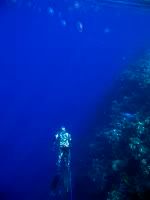tomgdrums wrote:+10mwyoung wrote:This is easy to settle...Houdini wrote:No, you miss the point that you're using 4 ratings to compute the relative scaling. With individual rating errors of 20 Elo one simply cannot make any statistically sound conclusions about micro-differences of plus or minus 10 Elo. And that even ignores the fact that you're cherry-picking the rating lists to base your conclusions on...lkaufman wrote: I think you are wrong on this last point. I'm combining the blitz results of ccrl with the blitz results of cegt to get a larger sample, and then comparing the slow results of the two organizations to get a larger sample. So the margin of error should be divided by roughly the square root of two, bringing it back down to your original 20 elo estimate. Twenty is less than 25, so even if I accept your twenty value the chance that Houdini 1.5 scales better than 2.0 is about 99% based on this data.
From all the test results at my disposal (including some private rating list results with 6 CPU), there is no evidence that Houdini 2 scales any differently than Houdini 1.5.
Robert
Don and Larry needs to meet one of their deadlines and release Komodo 4 for testing.
All they are waiting for is a version of Komodo 4 that can overtake Houdini in the rating lists. With all the trash talk from them about Houdini's problems. Why the delay?
Don and Larry do indeed talk a lot of smack in the forum.
They seemed to have become obsessed with overtaking Houdini!! It is like watching the computer chess version of "Moby Dick"!!
He piled upon Houdini the sum of all the general rage and hate felt by his whole race from Adam down; and then, as if his chest had been a mortar, he burst his hot heart's shell upon it.
